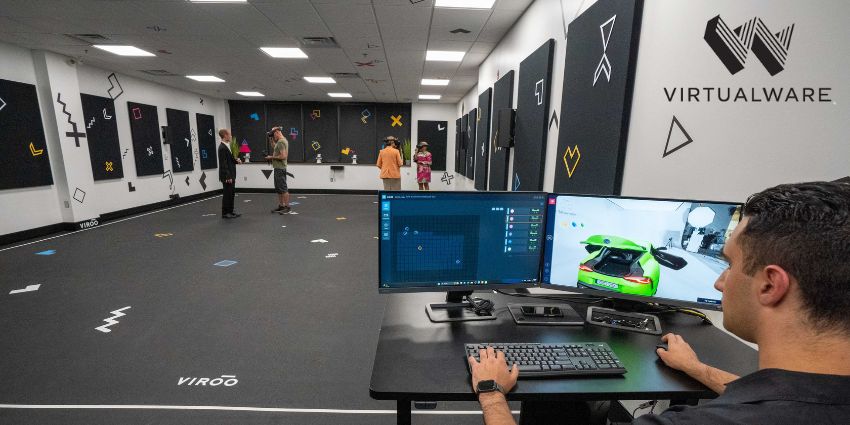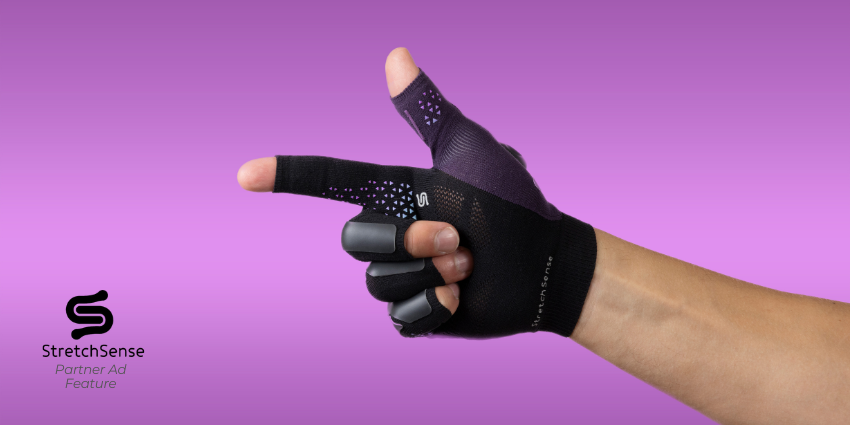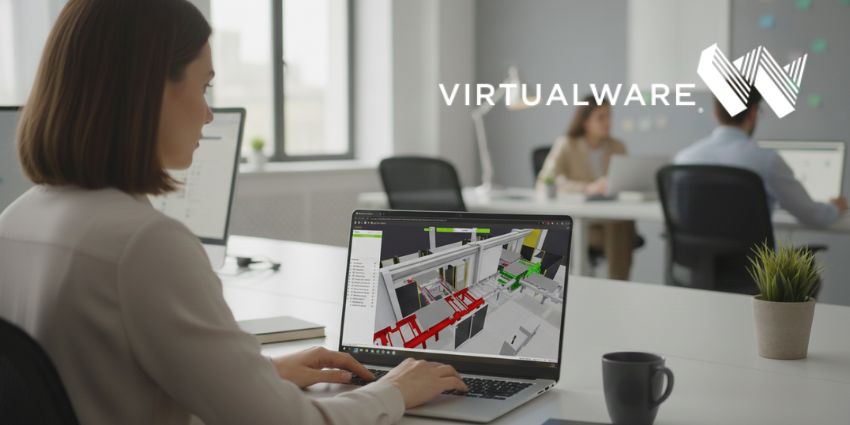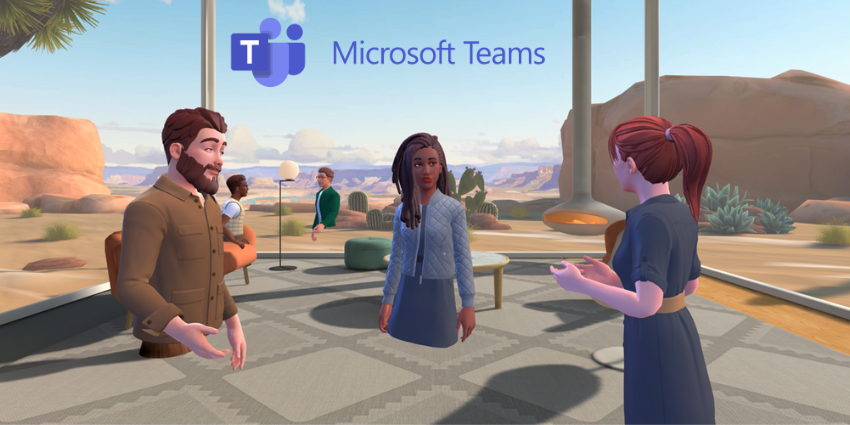The immersive experience is enhanced by the detachment from the physical surroundings, including co-located colleagues. But for truly effective training and learning, wouldn’t a shared experience be better? It’s through teamwork we solve challenging problems, and perform most effectively.
Enterprise VR technology is now ready to meet this need, thanks to Virtualware’s VIROO® VR Platform and its immersive VR Rooms concept.
VIROO® Room transforms the physical space into a shared multi-user VR environment, where teams and collaborators can truly come together and train in a true-to-life and low-pressure setting where mistakes carry no real consequences, affording limitless opportunities to practice. There they can master complex processes, collaborating with peers across continents, or exploring a full-scale VR replica with multiple users interacting at the same time.
From energy to transportation and education, the benefits for all industries are limitless.
Behind the headset: the edge technology of VIROO® Rooms
To create this spontaneous and frictionless group experience, requires the two decades of pioneering innovation of the Spain-based Virtualware team.
As CTO Sergio Barrera explained, conjuring the shared VR environment meant overcoming a wealth of technical challenges from the outset.
“To move in a VIROO® Room needs a few things, including precise and reliable tracking for multiple people who are simultaneously engaging in a shared physical space, and optimized data transfer rates to minimize latency, ensuring a smooth and responsive experience,” he explained.
“The solution is much better now than our first version back in 2017 where we were using backpacks and our own tracking system. As VR technology evolved and VIROO® Room gained awareness, we kept innovating and updating our solution, removing backpacks to improve operation and incorporating new capabilities. For instance, connecting several VIROO® Rooms remotely or even multi-projection systems such as CAVEs or similar.”
Deploying in immersive VR Rooms is one of the capabilities of VIROO VR platform, which offers a one-stop destination for enterprise VR, including multi-user VR content creation.
Complex training environments requiring intense collaboration
These clients include GE Vernova and McMaster University, as well as closer to home with ADIF, the Spanish railway infrastructure management company.
Virtualware partnered with GE Vernova to introduce a pioneering solution within the nuclear industry for Fuel Movement and Vessel Assembly and Vessel Distension processes, a complex and highly skilled activity that requires top-level expertise and training, as well as outstanding coordination between the different parties involved.
This innovative approach is built upon the VIROO® VR Platform and VIROO® Room, facilitating an increase in hands-on training time for personnel. Moreover, it equips workers with the necessary skills to effectively manage unforeseen events and emergencies through the simulation of real-life complex scenarios.
“Customers can take our hands-on VR simulators to train newer employees, make teams more proficient, help with communication skills, and really improve their performance, which in the end, improves the industry,” says Jarret Heitzmann, Virtual Reality Program Owner, GE Vernova.
Virtualware also partnered with the Faculty of Engineering at McMaster University to introduce its first VIROO® Room at McMaster Innovation Park in Hamilton (Canada). The new VR Lab called IMRSV@MAC 100m2 facility has made it possible for students and industry partners to leverage this innovative technology and therefore benefit from interacting with simulated environments.
“The unveiling of the custom-built immersive room will provide access to students, faculty, and businesses to push boundaries and explore the use of VR tools and technologies in the region,” says Ali Emadi, engineering professor and Canada Research Chair in Transportation Electrification and Smart Mobility, McMaster Engineering.
Virtualware also announced the launch of a Railway Infrastructure Simulator (SIF) for training in maintenance operation for ADIF. One of the key elements of the project is the new 120 square metre VIROO® Room, located at the Valencia Technology Training Centre, which will allow multi-user training sessions to be carried out on a real scale.
Even the Spanish military health school is benefiting from this work, using a VIROO® Room to address the challenges of training army units in medical protocols for chemical, biological, radiological, and nuclear scenarios.
Virtualware has deployed over 32 VIROO® Rooms worldwide, with a projected 60 installed by the end of 2024. “This is evidence that immersive VR rooms are increasingly becoming a vital element in industry training and higher education initiatives, and VIROO® is facilitating their accessibility.” concluded CMO David Moreno.







